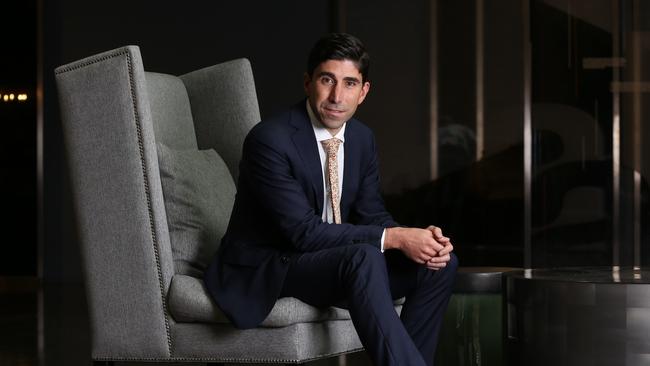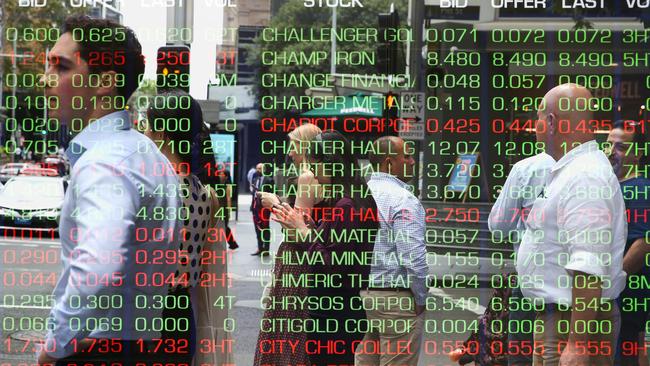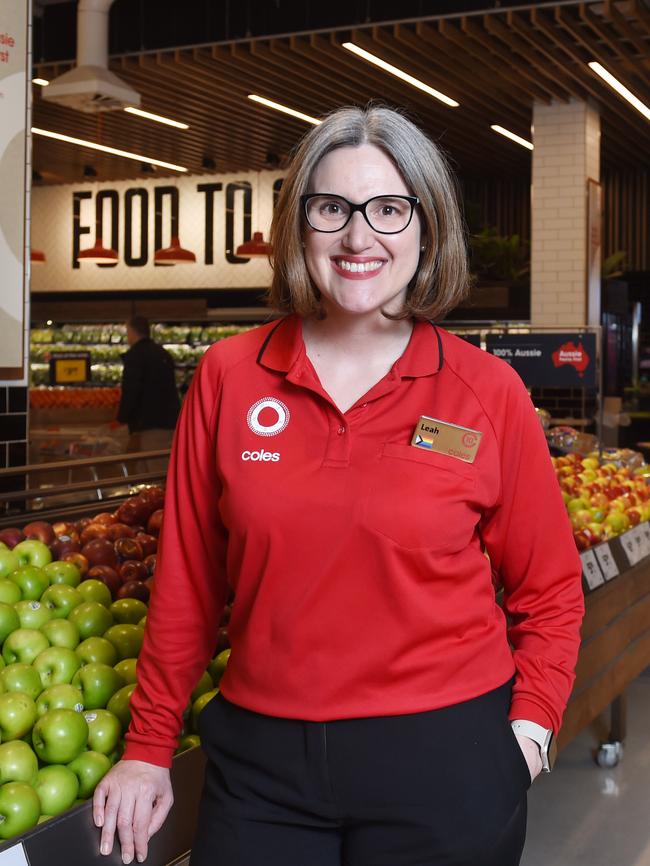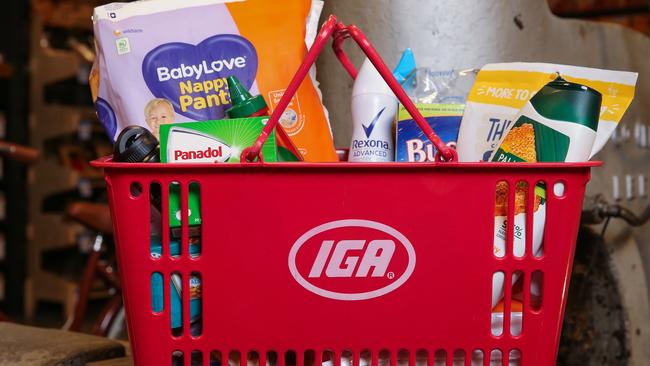This year CEOs have a February profit season challenge: keeping their job
The February profit season is usually the most active for CEO exits and retirements. And this year, bosses are under added pressure to tackle costs.

Business
Don't miss out on the headlines from Business. Followed categories will be added to My News.
A big few weeks are in store for the bosses of Australia’s listed companies, with many forced to sweat their businesses harder to navigate a slowing economy. The coming wave of earnings numbers will also represent an additional test for chief executives: keeping their job.
The smarter corporate boards are entering this year with the intention of adding a little more pressure on their management teams, around costs. And chairmen know that by getting in a new CEO with a new strategy, when the old one isn’t delivering, is often the best way to fortify their own jobs.

The February profit season is usually the most active for CEO exits, retirements or otherwise. For companies, it’s often better to get the CEO change out there and done at the start of the year, giving the business, markets and staff plenty of time for continuity.
And if a successor hasn’t already been identified, an announcement of a CEO departure at the start of the year gives plenty of runway to conduct a search for a replacement without the disruption of summer.
A smooth executive transition – like in Telstra’s case in 2022 – also means the outgoing boss also gets to deliver the full-year results.
Last year companies including Coles, Transurban, GPT, ALS, Baby Bunting and Omni Bridgeway used the February reporting season to also announce a departure of their chief executives. Not all were planned retirements.
In addition, many more CEOs flagged they were going in the months after the release of accounts. This included one of the most significant CEO shake-ups of the year – Alan Joyce at Qantas, who stepped down after 15 years as the airline’s boss. A legal action by the competition regulator and a consumer backlash forced Joyce to bring forward his exit.
Several large companies – ANZ (Shayne Elliott), Origin Energy (Frank Calabria) and Woolworths (Brad Banducci) – each have their CEO this year hit the eight-year mark in the role, generally seen as the upper range for a large ASX company. Each has previously said they have plenty more to offer. However, last year’s drawn out and ultimately failed takeover at Origin has taken its toll, with the energy company’s chief financial officer Lawrie Tremaine last week handing in his resignation after six years in the role.
In recent weeks, auto parts player Bapcor and wealth manager Insignia Finance (previously known as IOOF) have outlined plans to replace their CEOs.

In Bapcor’s case there’s been rapid turnover with four CEOs, including one acting, in the past three years. Bapcor last week named Paul Dumbrell as the new boss, to start on Monday. A search is underway to replace Insignia’s Renato Mota who agreed to step down by February by “mutual agreement”.
Former Qantas takeover target Alliance Airlines has just named Stewart Tully will take charge from March. Platinum Asset Management put its new chief Jeff Peters in the job a little over two weeks ago. His predecessor Andrew Clifford resigned from Platinum’s board last week but will stay on at the fund manager as co-chief investment officer.
Even with the sharemarket tracking at record highs, rapidly slowing retail sales through the December quarter and cooling inflation show the economy has shifted onto a slower track.
For companies, this means the days of double-digit earnings growth are over.
After an extraordinary period coming out of the Covid pandemic, business-as-usual isn’t going to cut it through this environment. And sharper boards already feeling the pressure from investors know part of the strategy revamp may also involve a new chief executive.
Mid-tier and junior miners are particularly vulnerable to a CEO change, with expansion plans now in doubt with the collapse in battery commodities such as lithium and nickel. This requires a significant shift in strategy.
While many Australian companies have resisted cutting jobs – no one wants to be caught short of talent in the case of a boost in sales – CEOs will need to show they are being proactive around costs to protect margins. The big costs still coming down the line are higher wage costs and interest costs.
Companies such as Wisetech Global, Ramsay Health Care, Seek, Worley and Downer are among those where labour costs represent more than 20 per cent of sales and will acutely feel the jump in costs.

Most companies have so far been able to raise prices in a high inflation environment, but passing on costs to hapless customers gets harder to do as the inflation cycle cools.
High-cost wage deals like DP World are going to eventually be passed back on to big port customers.
Capex programs are also set to be targeted to preserve cash. This will be pressing for the miners worst hit by commodities’ downturn. Others are looking at capex while the cost bubble remains fierce. Industrial Boral under new chief executive Vik Bansal last year slashed capex spending by a third, while CSL and Cochlear kept spending flat. As Qantas experienced. the difficulty for CEOs once the capex tap is turned off, it’s harder for it to be turned back on.
However, others like Wesfarmers, BHP and BlueScope have already outlined a hike to capex spending.
One CEO of an ASX top 20 company recently told The Australian the measure of his success in the job is to give whoever follows him plenty of “options for growth”. Not all CEOs will have that luxury, with boards recognising unless the strategy is delivering, they’ve got to move first.
Metcash move
A $500m-plus move by Metcash’s Doug Jones on Superior Food Group, set to be unveiled as early as this week, will be the first test for the competition regulator just as it has been told to put the heat on the supermarket sector.
Any deal by newish CEO Jones would give Metcash, the wholesaler behind IGA supermarkets and Campbells brands, a significant position in the last mile of food delivery for pubs, clubs and restaurants. Any deal follows Woolworths making a big entry into the space following its $552m acquisition of a majority stake in market leader PFD delivery three years ago.
Private equity fund Quadrant rolled up Superior Food through the merger with NFD Food Services nearly a decade ago. Superior delivers dry, chilled meats and seafoods to restaurants, cafes and canteens. It also delivers food to hospitals and aged care facilities.
Metcash last week placed its shares in a trading halt as it said it was in talks with Quadrant over a possible buyout of Superior Food. Metcash is expected to tap investors to help fund the deal, with the shares to remain in a halt.

Still, Metcash will need to get past the politics. The planned buyout comes amid intense scrutiny on Coles and Woolworths amid claims of price gouging on the back of the inflation bubble. Both supermarkets have strongly rejected the claim. However, Anthony Albanese has called for a 12-month probe into the behaviour of the big supermarkets and how they work with suppliers. Any deal that looks to be giving supermarkets more power is expected to face further scrutiny.
While the ACCC ultimately gave approval for Woolworths on PFD Foods, the regulator raised concerns about the prospect of an independent sales channel for food suppliers being lost. Metcash sits behind Woolworths and Coles in terms of supermarket share. For Metcash, Superior represents carving out its ground in the last mile delivery. Over time, Superior could offer a platform to bolster its home delivery battle against Coles and Woolworths. Metcash uses partnerships with Uber and Doordash for home delivery options.
Metcash currently has net debt of $329m, including cash of $100m. It has undrawn debt facilities of $670m.
johnstone@theaustralian.com.au
Originally published as This year CEOs have a February profit season challenge: keeping their job





